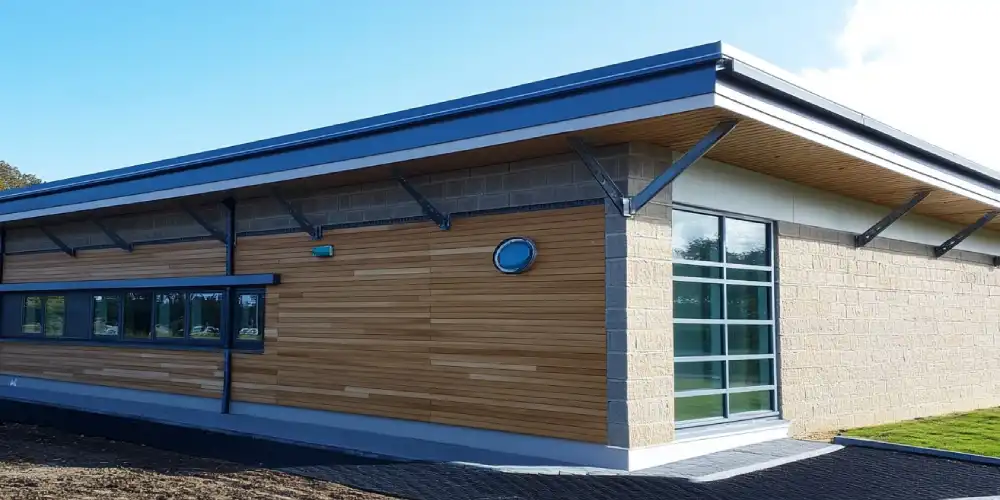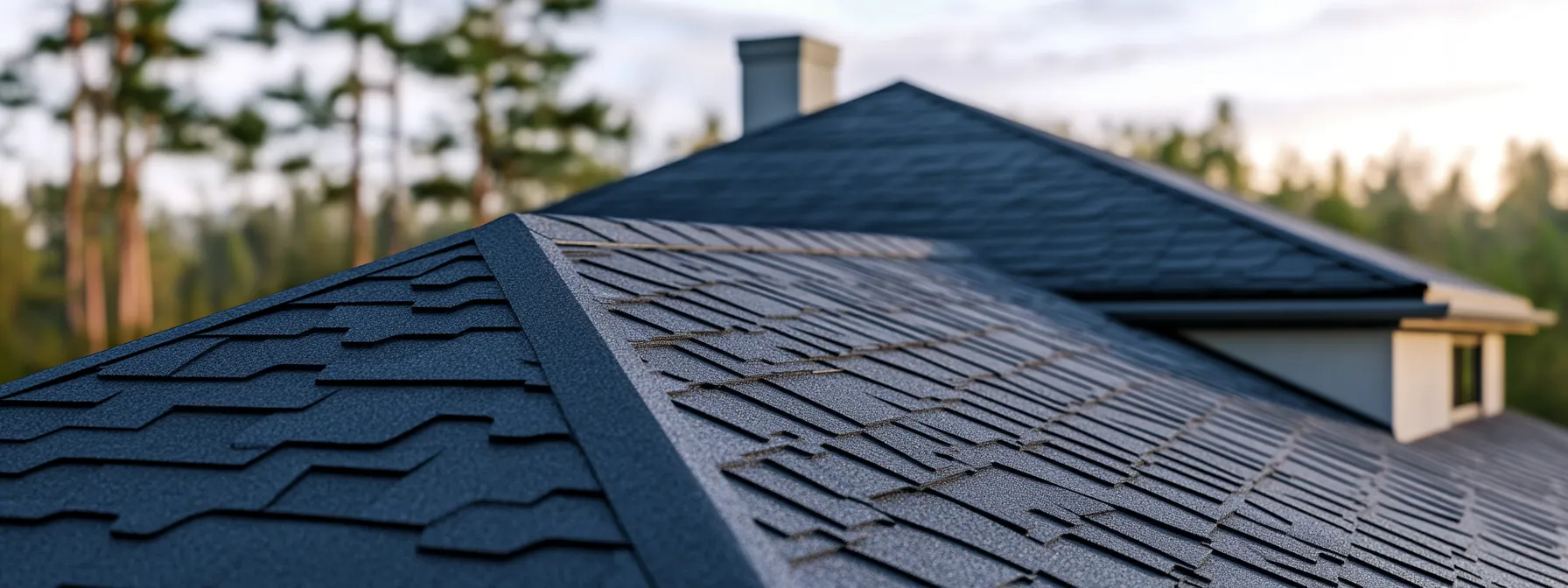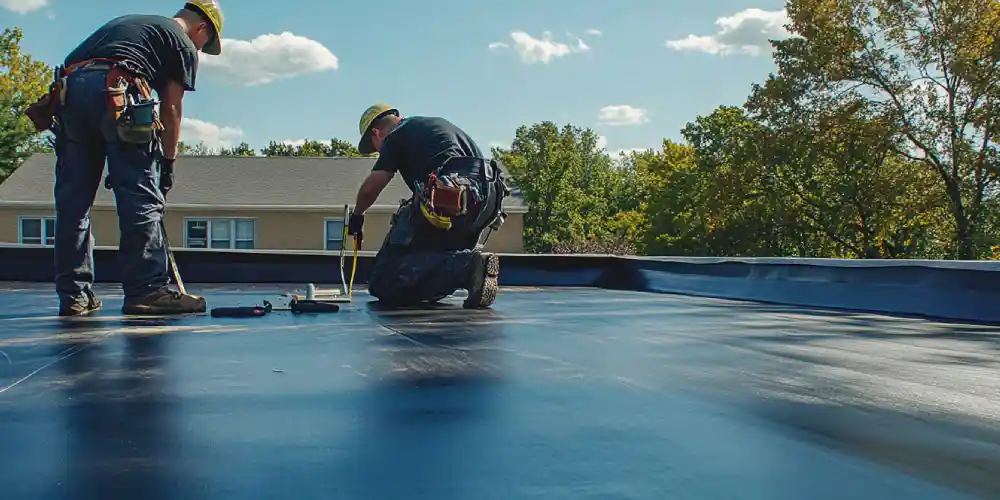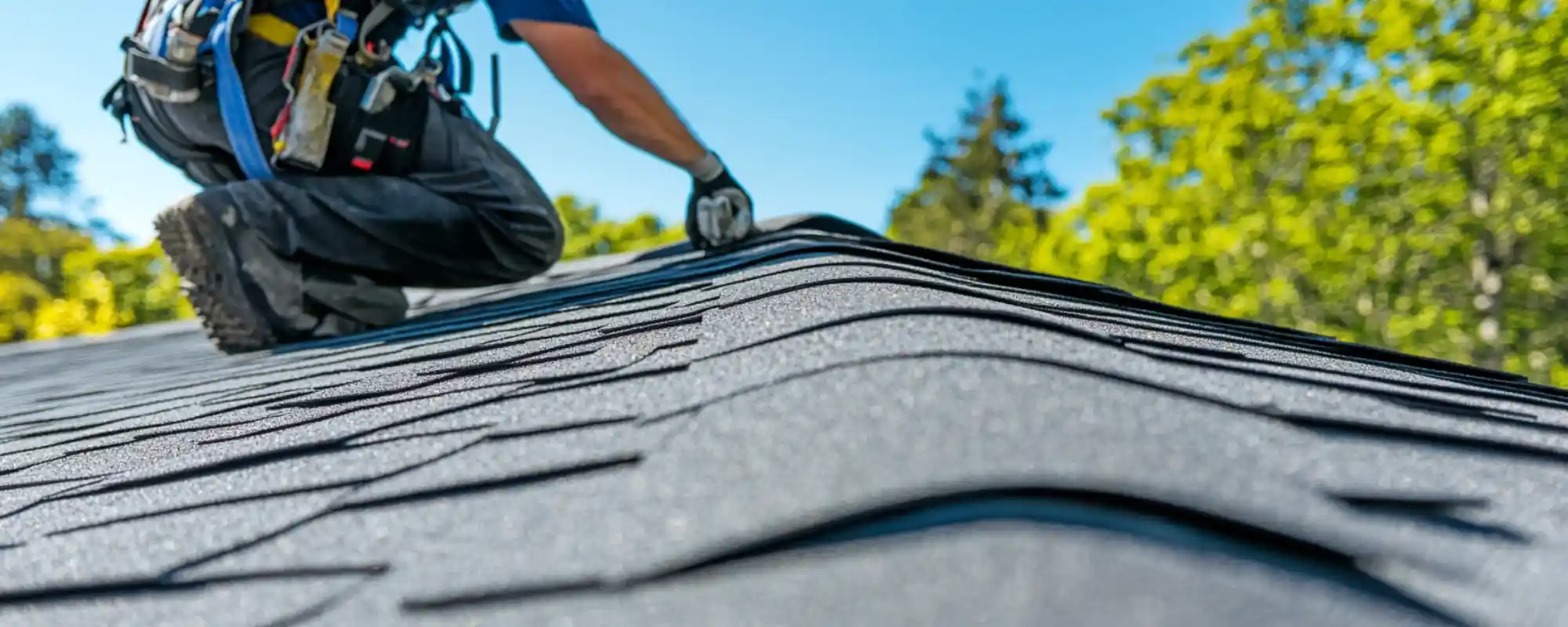Colorado Commercial Roof Warranty Explained: What You Need to Know
•
Written By
Mint Roofing

As a business owner in Colorado, protecting your commercial property is a top priority. One crucial aspect of this is understanding the warranties that come with your commercial roof. A comprehensive roof warranty can provide peace of mind and protect your investment, but navigating the details can be complex. In this guide, we'll break down everything you need to know about commercial roof warranties in Colorado, empowering you to make informed decisions for your business.
What is a Commercial Roof Warranty?
A commercial roof warranty is a guarantee provided by the manufacturer or installer that covers defects in materials and workmanship for a specified period. These warranties can vary in length, coverage, and terms, making it essential to understand the details before signing on the dotted line.
Types of Commercial Roof Warranties
There are two main types of commercial roof warranties:
- Manufacturer's Warranty: This warranty covers defects in the roofing materials themselves, such as shingles, membranes, or coatings. It typically lasts between 10 and 30 years, depending on the product and manufacturer.
- Contractor's Warranty: Also known as a workmanship warranty, this covers defects in the installation process. The length of these warranties can range from 2 to 10 years, depending on the contractor and the scope of the project.
It's important to note that some manufacturers require the use of certified contractors to install their products in order to maintain the validity of their warranties.
Key Components of a Commercial Roof Warranty
When reviewing a commercial roof warranty, pay close attention to the following components:
- Coverage Period: This is the length of time the warranty is valid, typically measured in years.
- Covered Defects: The warranty should clearly outline what defects are covered, such as material failures, leaks, or wind damage.
- Exclusions: Carefully review the exclusions, which are situations or conditions that are not covered by the warranty, such as improper maintenance or acts of nature.
- Transferability: Some warranties can be transferred to a new owner if the property is sold, while others are non-transferable.
- Claim Process: The warranty should outline the steps required to file a claim, including documentation and timelines.
Importance of Proper Installation and Maintenance
While a comprehensive warranty is essential, it's important to remember that proper installation and maintenance are crucial for ensuring the longevity of your commercial roof. Failure to follow the manufacturer's guidelines or neglecting regular maintenance can void the warranty, leaving you without protection.
At Mint Roofing, we pride ourselves on our commitment to quality workmanship and adherence to manufacturer specifications. Our team of experienced professionals will ensure that your commercial roof is installed correctly, maximizing the effectiveness of the warranty and protecting your investment.
Conclusion
Understanding the details of your commercial roof warranty is crucial for safeguarding your business and ensuring peace of mind. By familiarizing yourself with the types of warranties, key components, and the importance of proper installation and maintenance, you can make informed decisions and protect your investment for years to come. If you have any questions or need assistance navigating the world of commercial roof warranties in Colorado, our team at Mint Roofing is here to help.
Recent Articles

Residential Roofing
The Cost of Impact Resistant Shingles in Pagosa Springs, CO: Is It Worth It?
Protecting your Pagosa Springs home from hail and high winds doesn't have to break the bank. Explore the true cost of impact-resistant shingles and whether they're worth the investment.

Commercial Roofing
The Best Time of Year to Replace a Commercial Roof: Factors to Consider
Replacing a commercial roof is a major investment, and timing is crucial. Explore the best time of year to replace your commercial roof and the key factors to consider.

Residential Roofing
The Best Roofing for Hail in Colorado: Protecting Your Investment
Hail can wreak havoc on Colorado roofs. Discover the best roofing solutions to safeguard your home and investment from the region's unpredictable weather. Our experts provide the insights you need.

Roofing Contractors
Class 3 vs Class 4 Shingles in Colorado: Understanding Impact Resistance
Homeowners in Colorado know that impact-resistant roofing is crucial. Explore the key differences between Class 3 and Class 4 shingles to find the best protection for your home.



